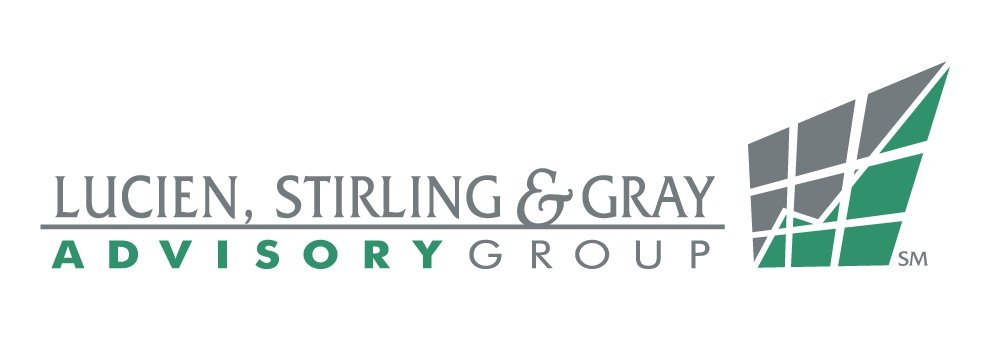To Be, or Not to Be Financially Literate: That is the Question.
By - The LSG Team
Did you know that April is “National Financial Literacy Month”? Maybe you have seen some of our social media postings highlighting this recently. While we hope you find our educational tidbits helpful this month, our real goal is to make financial literacy a focus of our ongoing communications all the time.
What started out as “Youth Financial Literacy Day” in the early 2000s slowly morphed into the month-long official recognition of teaching Americans to establish and maintain healthy financial habits that we have today. In fact, a bill was created but in true political fashion a proclamation was never issued, and here we are… April is recognized as “National Financial Literacy Month.”
All of us at Lucien, Stirling and Gray certainly believe that it is important to promote financial literacy and utilize this month as an education tool. Yet the reality is that most people are more aware of “National Margarita Day” or “National Pecan Month” (which also happens in April!). A quick search of “National Financial Literacy Month activities and events in the Austin area” yielded almost no results. So we have a month dedicated to financial literacy, but it’s hard for most people even to define what exactly financial literacy means.
“Financial literacy” is a lot like other forms of literacy – and its demands change as we age… For a child it may mean knowing the difference between nickels, dimes and quarters, or how to save an allowance for that iPod. For a teenager it may equate to learning the impact of taxes after receiving the first paycheck from a summer job, or learning about compound interest. As an adult, however, the term becomes ever more challenging. Financial literacy suddenly encompasses understanding all the possible options available for saving for a child’s college; taking out a loan; investing; saving for retirement; pensions; 401K plans; insuring yourself; tax planning; and passing on your wealth… the list goes on! Does “financial literacy” really require a full understanding all of these things and how they apply to your ever-changing life situations? In that case, can one ever be financially literate?
Well, in a word, no. You will probably never reach a point to where you are 100% financially literate – with all of the work behind you. Financial literacy is analogous to English literacy. When you are a child you start out listening to stories as they are read to you before you progress on to reading fairly simple books on your own. As you age, your depth of knowledge and practice increases. Hopefully, as you become more literate, what you are reading becomes more complex and your understanding of nuance and subtly improves – but so too does your awareness of how much more you don’t know. As the meaning of words change and even when new words become a part of our daily vocabulary (think “google” as a verb!), you adapt and educate yourself. Will you ever reach the point where you consider yourself 100% literate? Probably not – but you can certainly reach a point where you are confident in comprehending and communicating using basic English. Even someone who has gone as far as devoting his or her life to studying English and holds a PhD. in the subject will tell you that it requires continuous on-going study, disciplined research, and the fellowship of other scholars as your body of research expands and as the language evolves. Financial literacy is no different.
Good Financial Advisors have taken it upon themselves to put in the work, discipline and continuing education towards striving for “ultimate” financial literacy. Ideally, therefore, your financial advisor should serve a similar role as the English professor you once may have had – someone who can educate you, expose you to new concepts, ideas, and philosophy, and help you reach a point where you become confident in comprehending and addressing your own unique and changing financial situation. As your life evolves or new laws/rules/regulations come into effect, you can then rely on your advisor’s attention and expertise, along with your own comfort with the language of finance to assess how these changes might impact your life.
When you work with us, you are working with a team of professionals who are constantly collaborating behind the scenes to expand our own understanding, and to improve our capacity to communicate effectively. Each of us has a unique knowledge base or specialty, and we regularly share what we are learning with each other – so we continue to grow and so all our clients can benefit.
At Lucien, Stirling & Gray, we aim to highlight the importance of financial literacy and to educate ourselves and others about effective financial management daily, because financial literacy must continually be reassessed on a case-by-case basis. Even the most experienced and financially literate people benefit from reassessing established habits and thought processes when navigating a life transition or confronting a new financial challenge.
As always, we welcome any questions, comments, or suggestions you may have in regards to ways we can improve the education and communication channels we offer. We enjoy hearing your thoughts about all of our communication pieces, whether they relate to this newsletter article or our last Fireside Chat. After all, our hope is that these communication efforts, paired with a trusting relationship with your personal advisor, are always helping to give you a sense of comfort with your decisions and confidence that you’re in good hands.

